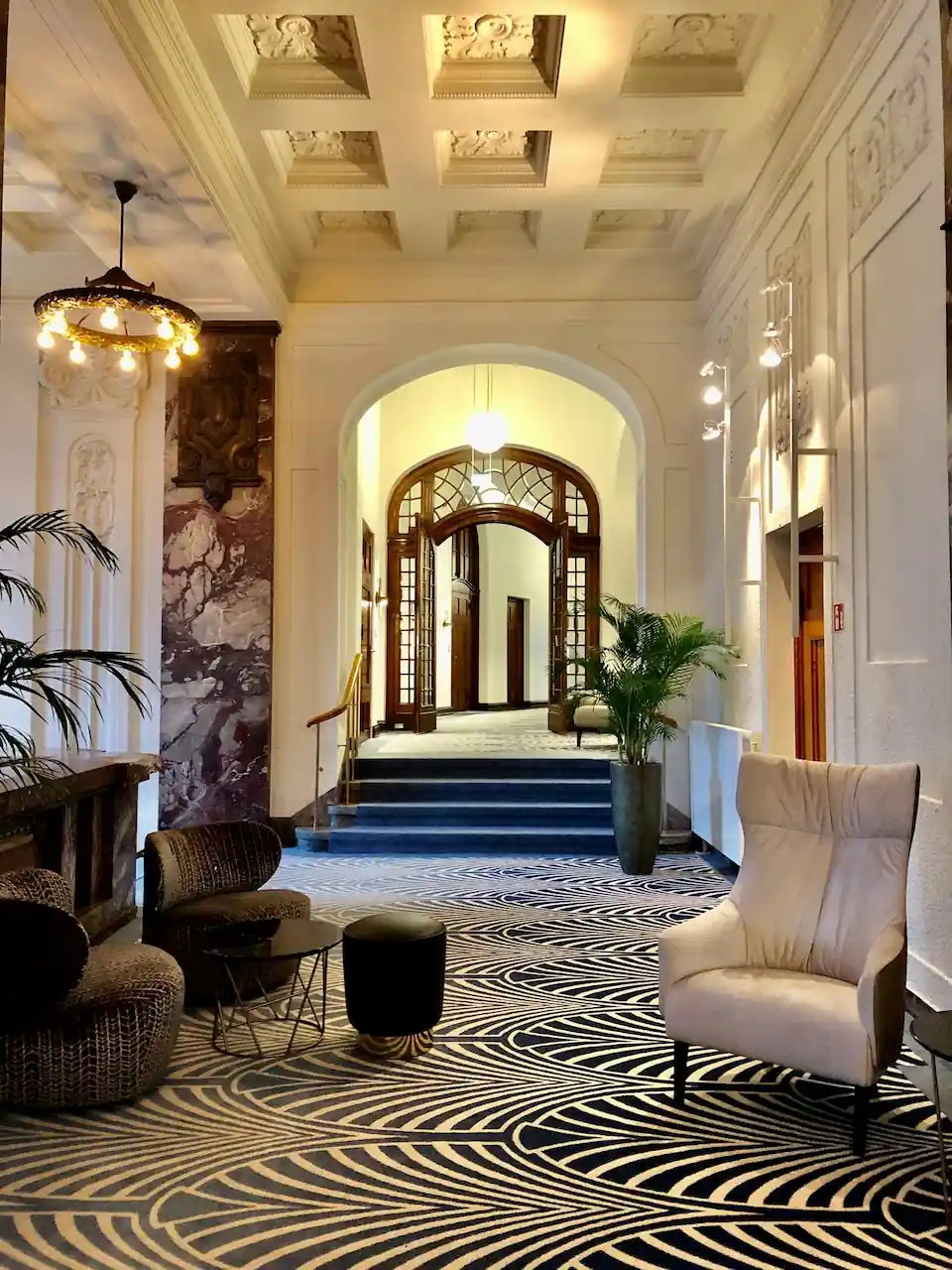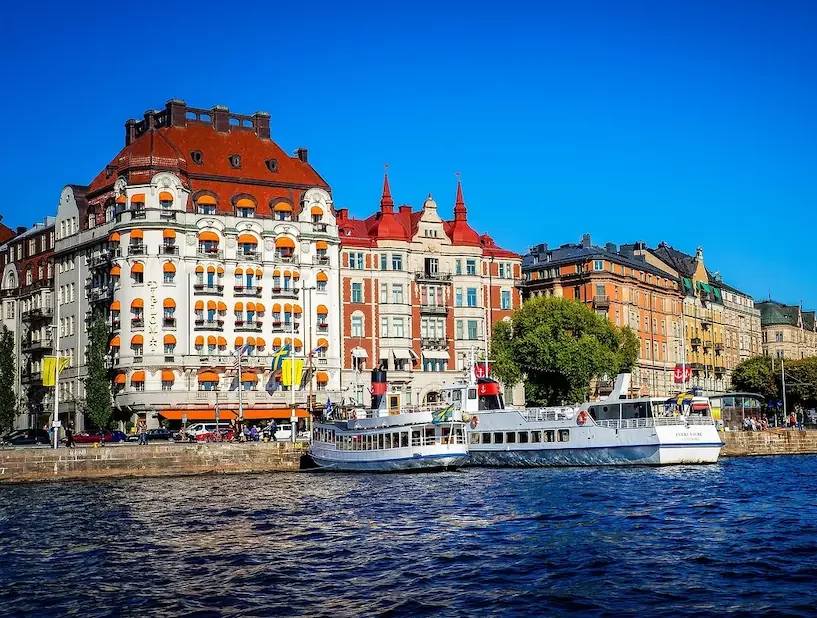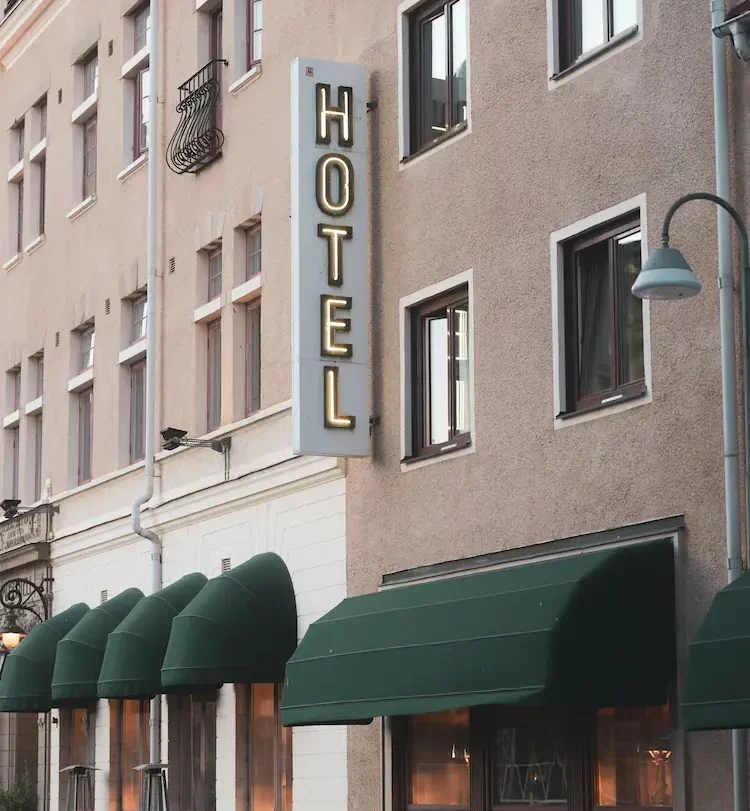Introduction
Hotel managers look at their computer screens and sigh over yet another frozen PMS interface. In 2025, this scene will be repeated in hotels around the world - from small boutique hotels to large hotel chains. The figures speak for themselves: hotels lose an average of 12 hours per week dealing with slow and inefficient PMS.
Let's be honest: your choice of PMS affects every aspect of your hotel business. From check-ins to revenue reporting, from room allocation to staff scheduling. When the system isn't working properly, everything slows down. Your guests notice. Your staff struggle. Your revenue is negatively affected.
The problem is not just about old software. Many legacy PMS systems lack crucial features such as real-time data analysis, mobile access and cloud-based backups.
This guide covers the key factors and features of modern PMS systems. We analyse real-world performance data, compare leading solutions and help you make an informed decision based on facts - not sales pitches.
The difference between a good and an excellent PMS system is not just in the feature list. It's about how these features work together to make your hotel business run smoothly. We'll give you the tools to see what really matters when choosing a PMS system that can meet your needs today and grow with you in the future.
Analysing reservation systems: Main problems with traditional PMS
- Traditional PMS systems suffer from slow updates and limited functionality.
- Integration with other tools is often missing in older systems.
- These problems can complicate hotel operations and create unnecessary obstacles.
Outdated technology
The limitations of legacy PMS systems are clear, mainly due to outdated technology. Many legacy systems run on slow and inefficient servers. In addition, many of these systems lack cloud-based functionality, which is a serious drawback. Cloud technology allows for real-time updates and access from any location - a crucial factor for modern hotels. Without this, data access becomes a cumbersome process, fraught with errors and delays.
As well as affecting efficiency, the risk of data breaches also increases, as older technologies lack advanced security features. In an era where data protection is paramount, the use of these systems presents an unnecessary vulnerability.
In addition to practical challenges, the lack of technical updates means that these systems quickly become obsolete. Important updates are rare, and the ability to plug security holes is limited. This makes the hotel IT infrastructure fragile and inefficient.
Guests today have higher expectations. Let us show you how we can take your business to the next level.
Limited customisation and flexibility
Customisation is not just about tailoring services - it is a key to meeting diverse operational needs. Traditional PMS systems, known for their rigidity, often fail to offer the customisation options that modern hotels require. These systems work well right out of the box, but they are not enough to create a unique brand experience or meet specific guest preferences.
The lack of customisation options negatively affects the guest experience. When software cannot be adjusted to individual needs, it can affect everything from booking processes to customer engagement. This limitation makes it difficult for hotels to stand out in a competitive market. Instead, it is increasingly important to prioritise customisability. Find out more about how Modular visits PMS can increase profitability.
Other key challenges
Beyond outdated technology and limited flexibility, there are more challenges that legacy PMS systems struggle with. They often have slow integration with third-party tools, creating inefficient workflows. Communication between systems can require manual data transfer, increasing the risk of errors and inconsistencies.
In addition, many legacy PMS systems have inadequate updates. These delays affect problem solving and make it harder to adapt to new business needs. Hotels risk missing out on modern analytical tools that can improve strategic decisions. The advanced reporting capabilities of newer systems give hotels a competitive advantage through insights into various performance metrics. Without these tools, it's easy to fall behind as competitors adopt data-driven strategies.
Understanding these challenges is crucial to realising why a transition to modern PMS systems is necessary.
- Requires physical servers and local IT infrastructure.
- High initial investment costs for hardware and installation.
- Restricted access - can only be used on site.
- Updates and maintenance must be handled manually by IT staff.
- Security risks as older systems often lack modern safeguards.
- Often difficult to integrate with other systems, creating inefficient workflows.
- Data is at risk of being lost in case of server failure without a proper backup solution.
- Scaling up is costly and requires additional hardware investments.
- Limited backup and recovery options, increasing the risk of data loss in the event of a system crash.
- Slower pace of innovation - more difficult to implement new features and updates compared to cloud-based systems.
- Accessible from any device with an internet connection.
- Lower initial costs - usually subscription-based solutions.
- Automatic updates and security upgrades without downtime.
- High security with encryption, GDPR compliance and real-time backups.
- Easy to integrate with other systems such as CRM, booking engines and payment solutions.
- Scalable - hotels can easily add more rooms, locations or features if needed.
- Real-time data and analytics for better business decisions and optimised revenue management.
- Reduced need for local IT staff and technical maintenance.
- Faster implementation and shorter learning curve for staff.
Simplify the running of your business! With our flexible platform, you can manage bookings, payments and guest communication in one place. Automate processes, save time and increase revenue.
Before we go deeper into the comparison of PMS systems, it is important to understand the basics. If you are new to PMS or want to refresh your knowledge, we recommend our comprehensive guide on PMS system. For those of you who are already familiar with the topic, let's go ahead and compare PMS solutions.
Key performance indicators in the hotel industry: How to measure success
- Key performance indicators drive hotel revenue and profitability
- Data optimisation helps maximise occupancy and revenue
- Better monitoring makes your PMS more effective
1. occupancy rate
Why it is important in daily operations
Occupancy is one of the most important metrics for a hotel - it shows the percentage of rooms that are let during a given period. The higher the occupancy, the better the revenue. Keeping track of this figure helps hotel managers adjust their pricing and marketing to demand, maximising bookings.
How a PMS can help improve occupancy rates
A modern Property Management System (PMS) can have a major impact on occupancy rates by providing real-time data on bookings and occupancy. With smart analytics tools, hotels can identify trends, adjust rates and launch promotions at the right time. PMS systems linked to booking platforms and travel agencies also increase visibility and bookings. Moreover, by using forecasting, hotels can better allocate guests to optimise room usage.
How you can use data to optimise occupancy
Working in a data-driven way makes it easier to maintain consistent and high occupancy. With PMS, hotels can track booking patterns, analyse guest behaviour and see which channels generate the most bookings. These insights make it possible to personalise marketing and create tailored offers for specific target groups.
2. revenue per available room (RevPAR)
What RevPAR means and why it matters
RevPAR (Revenue Per Available Room) is a key performance indicator that shows how efficiently a hotel fills its rooms at the right price. It combines the occupancy rate with the average room rate, giving a clear picture of how well the hotel is maximising its revenue.
How a PMS can improve RevPAR
A powerful PMS can increase RevPAR by automatically adjusting rates based on demand, seasonal trends and competitor analysis. By using AI-powered tools, hotels can optimise their rates in real time and ensure rooms are sold at the highest possible value. In addition, hotels can use the CRM features of PMS to create personalised guest experiences, leading to higher loyalty and more repeat guests. Read more about how modern systems can increase efficiency in the benefits of PMS for hotels.
Examples of data-driven strategies
To improve RevPAR, successful hotels use strategies like yield management and market analysis. By using predictive analytics, hotels can change their rates based on demand and market trends. These techniques are used by leading hotel chains to optimise their revenue. Discover more smart automation solutions in our article on the latest PMS automations for 2025.
Choose the right PMS: a deep dive into the modern solutions
Not all PMS systems are created equal. Modern PMS solutions have major advantages over traditional systems. They solve many common problems such as slow updates and lack of integration capabilities.
A modern PMS as a powerful alternative
A modern PMS is a strong alternative to outdated systems. These solutions integrate seamlessly with other hotel tools, such as POS and CRM, creating a unified platform to manage all data. Thanks to better integration, hotels can make more informed decisions and streamline their operations.
Unique features that solve traditional problems
Today's PMS systems offer features that older systems lack:
- Cloud integration for security and easy access wherever you are.
- Real-time data for smarter planning and pricing.
- Mobile access for increased flexibility and better user experience.
Cloud-based PMS solutions give hotels the opportunity to improve both the guest experience and operational efficiency. With automated processes and real-time data, staff can work more productively, while guests enjoy a smoother and more personalised stay. Want to know more about the benefits of cloud-based PMS systems? Read our guide on cloud-based PMS solutions.
How a modern PMS is changing the hotel business
Implementing a modern PMS has a major impact on the daily operations of hotels. With real-time analytics, hotels can optimise their occupancy and manage their room supply effectively. This allows them to quickly adapt to market demand and use dynamic pricing to maximise revenue. Studies show that real-time data gives hotels a clear competitive advantage and helps them improve their strategies.
How to choose the right PMS - key assessment criteria
Choosing between modern PMS systems can feel overwhelming. Here we break down the key factors to consider:
- Unique features - What makes it different from its competitors?
- User experience - Is the interface simple and smooth?
- Integrations - Can the system be linked to existing tools?
- AI and customisability - How smart is the system?
- Performance and stability - Can the system handle high loads?
- Cost - How does the price compare to the alternatives?
- Learning curve - How quickly can staff learn the system?
- Customer support - Is round-the-clock support offered?
10 pitfalls to avoid when choosing PMS.
Ensure that the PMS integrates seamlessly with your existing systems (e.g. CRM, accounting, booking platforms).
Ensure that the PMS integrates seamlessly with your existing systems (e.g. CRM, accounting, booking platforms).
Ensure that the PMS integrates seamlessly with your existing systems (e.g. CRM, accounting, booking platforms).
Ensure that the PMS integrates seamlessly with your existing systems (e.g. CRM, accounting, booking platforms).
Ensure that the PMS integrates seamlessly with your existing systems (e.g. CRM, accounting, booking platforms).
Ensure that the PMS integrates seamlessly with your existing systems (e.g. CRM, accounting, booking platforms).
Ensure that the PMS integrates seamlessly with your existing systems (e.g. CRM, accounting, booking platforms).
Ensure that the PMS integrates seamlessly with your existing systems (e.g. CRM, accounting, booking platforms).
Ensure that the PMS integrates seamlessly with your existing systems (e.g. CRM, accounting, booking platforms).
Delays and crashes can negatively impact both the guest experience and daily operations.
Key factors to consider when choosing a PMS system
- Scalability addresses growing needs
- User-friendly design increases efficiency
- Reliable support ensures smooth processes
1. scalability
For hotels aiming for growth, scalability is a crucial factor when choosing a PMS system. Modern PMS solutions adapt to the needs of the business without sacrificing performance. They offer flexible modules that can be easily integrated as your business expands.
If you're planning to expand your business, open more units or improve existing facilities, it's important that the PMS can handle this smoothly. Features such as multi-site management and dynamic pricing facilitate expansions without creating unnecessary administration.
2. user-friendly interface
An easy-to-use PMS is essential for the smooth running of the hotel. An intuitive interface reduces learning time for staff and makes work more efficient. The easier the system is to use, the faster new employees can get into the workflow.
Investing in a PMS with a user-friendly design means fewer errors, better morale and less time spent on training. As a hotel manager, it is important to ensure that the system works smoothly in day-to-day operations and that staff feel confident in its use.
3. Supplier support and reliability
The support provided by the PMS provider is a crucial factor in ensuring stable operations. Fast and reliable support minimises downtime and ensures that the guest experience is not negatively affected by technical issues.
When selecting a PMS, it's important to look at the provider's reputation, customer reviews and how quickly they deal with issues. A provider with a dedicated support team can make a big difference to the smooth running of your business. Read more about how to evaluate support and supplier performance in our article How to choose the right PMS system.
4. cost and long-term investment
Finding a PMS that fits both budget and business needs can be a challenge. The price should reflect the functionality of the system and the benefits it brings in terms of efficiency and revenue growth.
When evaluating different options, it is important to look not only at the initial cost, but also at ongoing expenses for updates, support and training. Free trials can be a good way to get an idea of the value and functionality of the system before making an investment.
5. advanced features
A modern PMS should offer more than just basic functions. Features such as mobile access, contactless solutions and cloud integration are becoming increasingly important in an industry where efficiency and guest experience are key.
Hotel guests today expect a seamless and digital experience, so these features can have a big impact on the success of your business. Choosing a PMS that supports these technological advances can future-proof your business and help you keep up with the competition.
Want to know more about the latest features in PMS? Read our article on hidden gems in PMS systems.
Choosing the right PMS is about more than just administrative functions - it's a strategic investment that can improve the entire hotel business.
8 tips for choosing the right PMS
Choose a cloud-based PMS for better scalability, remote access and automatic updates.
Ensure that the PMS has seamless integration with OTAs and direct booking engines to maximise occupancy.
Look for dynamic pricing tools that adjust prices based on demand, season and competitor prices. Often this is an integration to an external platform.
Choose a PMS with CRM features to track guest preferences and increase repeat bookings.
A mobile-friendly PMS allows staff to manage operations from anywhere, increasing efficiency.
Advanced reporting tools help you track revenue, occupancy trends and profitability in real time.
Secure and smooth payment processing speeds up transactions and reduces the risk of errors.
Automate task distribution and get real-time updates to improve turnaround times.
Conclusion
Choosing the right Property Management System (PMS) is a strategic decision that affects all areas of hotel operations. Modern PMS solutions have revolutionised the way hotels manage their daily tasks, increasing revenue and improving the guest experience. The key is to choose a system that fits your needs.
The most effective PMS combines key features like cloud-based access and real-time data with practical benefits like easy staff training and reliable vendor support. Invest in systems that clearly show improved metrics like increased occupancy and higher RevPAR. These figures provide a concrete picture of how a PMS affects profitability.
When comparing different PMS options, make a checklist of the features you absolutely need. Consider both current needs and future expansion possibilities. Test the user-friendliness of the system with your staff. Ask suppliers about their update plans and how quickly they respond to support requests. Also ask for references from hotels in the same size and segment as your own.
The right PMS is more than just a booking system - it becomes the core of your business. By carefully evaluating features, metrics and vendor reliability, you can choose a system that will support your business for years to come. Spend time analysing your options carefully - your choice will have a long-term impact on your hotel's efficiency and growth.






